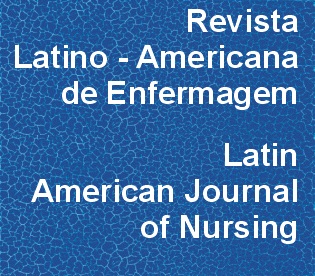Nursing strategies for child health surveillance
DOI:
https://doi.org/10.1590/1518-8345.2434.3007Keywords:
Child, Child Care, Surveillance, Nursing, Primary Health Care, Comprehensive Health CareAbstract
Objective: to appreciate the strategies promoted by nurses in the context of child health surveillance relevant to early childhood development. Method: this is a qualitative study with an inductive thematic analysis of the data, based on the conceptual principles of child health surveillance, and developed through semi-structured interviews with Brazilian nurses working with families in primary health care. Results: the nurses’ strategies in favor of child health surveillance focus on actions that anticipate harm with continuous follow-up and monitoring of health indicators. The process of child growth and development is the basis for responses and benefits to health, connection with the daily lives of families, active search, articulations between professionals and services, access to comprehensive care, and intrinsic actions between promotion, prevention and health follow-up. Conclusion: child health surveillance actions developed by nurses with families involve knowledge sharing, favor the resolution of problems, increase child health indicators, and strengthen the relationship between health and children’s rights, which support the promotion of development in early childhood.Downloads
Download data is not yet available.
Downloads
Published
2018-01-01
Issue
Section
Original Articles
License
RLAE’s authorship concept is based on the substantial contribution by each of the individuals listed as authors, mainly in terms of conceiving and planning the research project, collecting or analyzing and interpreting data, writing and critical review. Indication of authors’ names under the article title is limited to six. If more, authors are listed on the online submission form under Acknowledgements. The possibility of including more than six authors will only be examined on multicenter studies, considering the explanations presented by the authors.Including names of authors whose contribution does not fit into the above criteria cannot be justified. Those names can be included in the Acknowledgements section.
Authors are fully responsible for the concepts disseminated in their manuscripts, which do not necessarily reflect the editors’ and editorial board’s opinion.
How to Cite
Nursing strategies for child health surveillance. (2018). Revista Latino-Americana De Enfermagem, 26, e3007. https://doi.org/10.1590/1518-8345.2434.3007



